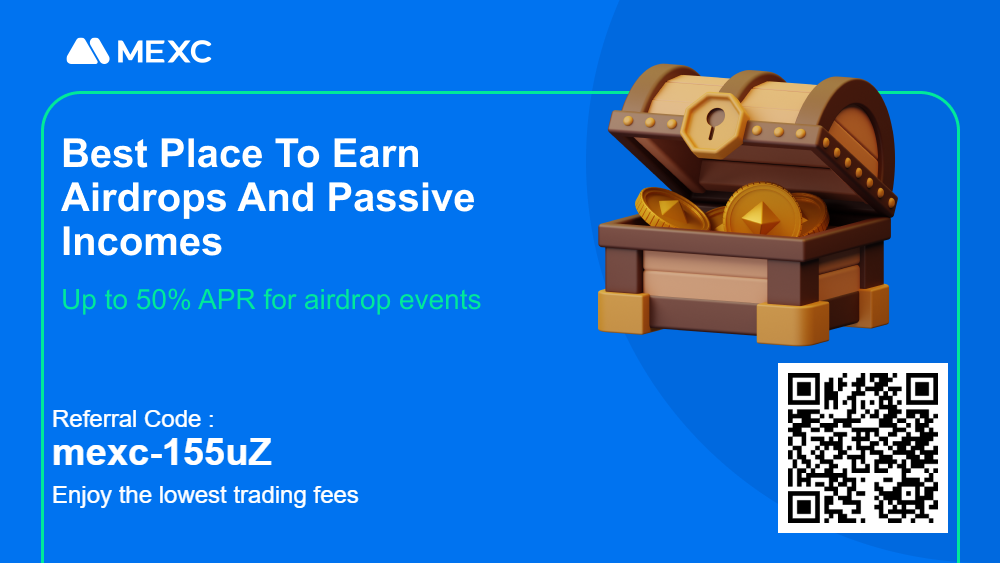In the ever-evolving digital landscape, “Crypto as a Service” (CaaS) stands out as a beacon of innovation. As businesses grapple with the complexities of the crypto world, CaaS emerges as a solution, promising scalability, security, and much more. But what exactly is CaaS, and why is it becoming the talk of the town?
Table of Contents
What is “Crypto as a Service” (CaaS)?
Crypto as a Service (CaaS) is an innovative model that offers cryptocurrency-related services through cloud-based platforms to businesses and individuals. Much like Software as a Service (SaaS) provides software solutions over the internet, CaaS provides crypto solutions without the need for users to manage the underlying infrastructure or technical complexities. Here’s a more detailed breakdown:
Definition and Core Concept
At its essence, CaaS is a service model that allows users to leverage cryptocurrency functionalities without the need to handle the intricate technicalities. This means businesses or individuals can integrate crypto-related features into their operations without having to set up and manage their own crypto infrastructure.
Key Features of CaaS
- Wallet Management: CaaS platforms often provide digital wallets that allow users to store, send, and receive various cryptocurrencies. These wallets come with high-level security features to ensure the safety of the assets.
- Transaction Processing: CaaS can handle cryptocurrency transactions, ensuring they are processed quickly and securely. This includes both payments and transfers.
- Security Protocols: One of the primary offerings of CaaS is robust security. This includes encryption, multi-signature wallets, and other measures to protect against hacks and unauthorized access.
- Integration Tools: CaaS platforms often offer APIs and other tools that allow businesses to seamlessly integrate cryptocurrency features into their existing systems, be it for payments, rewards, or other functionalities.
- Regulatory Compliance: Given the evolving regulatory landscape around cryptocurrencies, many CaaS providers ensure that their services are compliant with local and international regulations, reducing legal risks for users.
Benefits of Using CaaS
| Benefit | Description | Real-world Impact |
|---|---|---|
| Enhanced Security | CaaS platforms prioritize top-notch security protocols, including encryption, multi-signature wallets, and regular security audits. | Reduces the risk of hacks, unauthorized access, and asset theft, ensuring peace of mind for users. |
| Scalability | Designed to handle varying transaction volumes, CaaS can scale as a business grows, ensuring consistent performance. | Businesses can expand their crypto operations without worrying about infrastructure limitations. |
| Cost-effectiveness | By leveraging CaaS, businesses can avoid the high costs associated with setting up and maintaining their own crypto infrastructure. | Leads to significant savings in both time and money, allowing for better allocation of resources. |
| Streamlined Operations | CaaS platforms offer automated tools and real-time analytics, ensuring smooth and efficient crypto operations. | Simplifies the process of managing crypto transactions, leading to increased operational efficiency. |
| Regulatory Compliance | Many CaaS providers ensure their services are in line with local and international crypto regulations. | Reduces legal risks and ensures businesses remain compliant without constantly monitoring regulatory changes. |
| Integration Capabilities | CaaS platforms often come with APIs and tools that allow seamless integration into existing business systems. | Enables businesses to easily add crypto functionalities to their current operations without major overhauls. |
| Access to Multiple Currencies | Users can transact in a variety of cryptocurrencies without the need to set up individual wallets for each. | Broadens the scope of transactions, allowing businesses to cater to a wider audience with diverse crypto preferences. |
| Backup and Recovery | CaaS providers often have backup systems in place to recover data or assets in case of unforeseen issues. | Ensures business continuity and reduces the impact of potential system failures or errors. |
| Customer Support | Dedicated support teams are available to assist with any issues or queries related to the platform. | Provides users with timely assistance, enhancing the overall user experience and trust in the platform. |
| Regular Updates | CaaS platforms are frequently updated to include new features, security enhancements, and other improvements. | Ensures users always have access to the latest tools and functionalities, keeping them ahead of the curve. |
In essence, Crypto as a Service (CaaS) offers a plethora of benefits that make it an attractive option for businesses and individuals looking to venture into the crypto realm. From security to scalability, CaaS ensures that users can leverage the power of cryptocurrencies without the associated challenges of managing the infrastructure themselves.
Use Cases of CaaS

Financial Institutions and Banking
- Cross-border Transactions: CaaS can facilitate faster and more cost-effective international transactions, bypassing traditional banking systems and their associated fees.
- Tokenized Assets: Banks can use CaaS to issue tokenized versions of traditional assets, such as stocks, bonds, or real estate, allowing for fractional ownership and easier transferability.
- Decentralized Finance (DeFi) Integration: CaaS can help banks integrate with DeFi platforms, offering customers services like lending, borrowing, or yield farming without leaving the bank’s ecosystem.
E-commerce and Online Marketplaces
- Crypto Payments: Online stores can integrate CaaS to accept cryptocurrency payments, attracting a broader audience and reducing transaction fees.
- Loyalty and Rewards: Businesses can issue crypto-based rewards or loyalty tokens to customers, which can be traded, redeemed, or even used for staking.
Supply Chain and Logistics
- Transparent Tracking: CaaS can power blockchain-based tracking systems, ensuring transparency and traceability of goods from the manufacturer to the end consumer.
- Smart Contracts: Automate processes like payments upon delivery or quality checks using blockchain’s smart contract functionality.
Healthcare
- Secure Patient Records: CaaS can store patient data on the blockchain, ensuring security, immutability, and easy access for authorized personnel.
- Drug Traceability: Track drugs from production to pharmacies, ensuring authenticity and reducing counterfeit medicines.
Real Estate
- Tokenized Property Ownership: Properties can be tokenized, allowing for fractional ownership, easier transfers, and potentially more liquidity in the real estate market.
- Smart Lease Contracts: Lease agreements can be executed as smart contracts, automating processes like rent collection or damage deposits based on predefined conditions.
Gaming and Entertainment
- In-game Assets: Gamers can buy, sell, or trade tokenized in-game assets across different games or platforms.
- Royalty Distribution: Artists and creators can receive royalties automatically through smart contracts whenever their content is used or purchased.
Public Sector and Governance
- Identity Verification: CaaS can power blockchain-based identity systems, ensuring secure and tamper-proof identity verification processes.
- Voting Systems: Implement transparent and tamper-proof voting systems for public elections or organizational decision-making.
Insurance
- Claim Automation: Smart contracts can automatically process and pay out claims based on predefined conditions, reducing fraud and processing time.
- Transparent Underwriting: Policy details and underwriting processes can be stored transparently on the blockchain, ensuring trust and clarity between parties.
How CaaS is Shaping the Future of Crypto

Democratizing Access to Cryptocurrency
- Leveling the Playing Field: CaaS platforms simplify the complexities of the crypto world, making it accessible to individuals and businesses without deep technical expertise. This democratization ensures that more people can participate in the crypto economy, fostering inclusivity.
- Lowering Entry Barriers: By offering crypto-related services as a packaged solution, CaaS reduces the initial costs and technical challenges, allowing startups and smaller businesses to integrate crypto functionalities without hefty investments.
Enhancing Security and Trust
- Robust Security Protocols: CaaS providers prioritize top-tier security measures, from multi-signature wallets to advanced encryption techniques. This focus on security helps mitigate risks and fosters trust among users.
- Regular Audits and Compliance: Many CaaS platforms undergo regular security audits and ensure compliance with evolving crypto regulations. This adherence to standards further bolsters trust and ensures users operate within legal frameworks.
Facilitating Mainstream Adoption
- Integration with Traditional Systems: CaaS platforms often provide tools and APIs that allow businesses to seamlessly integrate crypto functionalities into their existing systems, be it payment gateways, banking services, or e-commerce platforms. This seamless integration accelerates mainstream adoption of cryptocurrencies.
- Educational Resources: Many CaaS providers offer educational content, tutorials, and customer support, helping users understand the nuances of the crypto world. This educational push is crucial for driving adoption among those unfamiliar with crypto.
Empowering Decentralized Finance (DeFi)
- Bridging the Gap: CaaS platforms can act as bridges between traditional financial systems and decentralized finance platforms. By offering services that integrate with DeFi, CaaS is bringing decentralized financial products to a broader audience.
- Facilitating Innovative Financial Products: With CaaS, businesses can easily launch DeFi products like lending platforms, yield farming pools, or decentralized exchanges, expanding the ecosystem and offering users more financial tools.
Promoting Transparency and Decentralization
- Immutable Records: CaaS platforms, leveraging blockchain technology, ensure that all transactions are recorded transparently and immutably. This transparency is crucial for sectors like supply chain, finance, and public records.
- Decentralized Operations: By promoting decentralized systems, CaaS is reducing the reliance on central authorities or intermediaries. This decentralization can lead to reduced costs, faster transactions, and more control for end-users.
Innovating Beyond Currency
- Tokenization of Assets: CaaS platforms are enabling the tokenization of various assets, from real estate to art. This tokenization allows for fractional ownership, increased liquidity, and new investment opportunities.
- Smart Contracts: CaaS is facilitating the broader adoption of smart contracts, automating various processes and agreements, ensuring they are executed precisely as intended without intermediaries.
Challenges and Concerns

Security Threats and Vulnerabilities
- Hacking and Breaches: Even though CaaS providers prioritize security, the lucrative nature of cryptocurrencies makes them a prime target for hackers. Breaches could lead to significant financial losses for users.
- Internal Threats: Malicious actors within the service provider’s team or infrastructure could exploit vulnerabilities or misuse access privileges.
Regulatory and Compliance Issues
- Evolving Regulations: The crypto landscape is still in its nascent stages in terms of regulation. As governments and regulatory bodies work to understand and legislate the space, CaaS providers must constantly adapt, which can be challenging.
- Jurisdictional Differences: Cryptocurrency regulations can vary significantly from one country to another. CaaS providers operating globally must navigate this complex regulatory maze, ensuring compliance in all regions.
Integration Challenges with Legacy Systems
- Technical Hurdles: Integrating CaaS solutions with older, legacy systems can be technically challenging, potentially leading to inefficiencies or system incompatibilities.
- Cultural Resistance: Traditional businesses might resist adopting crypto functionalities due to a lack of understanding or trust in the technology.
Liquidity Concerns
- Market Volatility: The value of cryptocurrencies can be highly volatile. Businesses using CaaS for transactions might face challenges related to price fluctuations, affecting their revenues or costs.
- Liquidity Issues: For less popular cryptocurrencies, there might be liquidity concerns, making it challenging to convert large amounts into fiat currency quickly.
Operational Complexity
- Management Overhead: Managing crypto assets, understanding tax implications, and ensuring regulatory compliance can add operational complexity for businesses.
- Training and Education: Employees and stakeholders might require training to understand and effectively use CaaS offerings, adding to the operational overhead.
Public Perception and Trust
- Misconceptions: Cryptocurrencies are often associated with illicit activities due to some high-profile cases. This perception can deter businesses and individuals from using CaaS.
- Lack of Understanding: The technical nature of cryptocurrencies and blockchain can be daunting for many, leading to hesitancy in adoption.
Potential Centralization
- Reliance on Service Providers: While blockchain and cryptocurrencies are inherently decentralized, relying heavily on a few CaaS providers might lead to centralization, going against the ethos of decentralization.
- Single Points of Failure: If a major CaaS provider faces technical issues or breaches, it could impact a large number of businesses and users, creating systemic risks.
Best Practices for Implementing CaaS
Thorough Research and Vendor Selection
- Understand Your Needs: Before selecting a CaaS provider, understand your specific requirements. Are you looking for payment processing, wallet management, or a more comprehensive suite of services?
- Vendor Reputation: Choose a CaaS provider with a strong reputation in the industry. Look for reviews, case studies, and testimonials to gauge their reliability and performance.
Prioritize Security
- Multi-layered Security: Ensure the CaaS provider offers robust security features, including multi-factor authentication, encryption, and cold storage solutions.
- Regular Audits: Opt for providers that undergo regular security audits and can provide transparency about their security protocols.
Stay Updated with Compliance and Regulations
- Regulatory Alignment: Ensure the CaaS provider adheres to local and international crypto regulations. This is crucial to avoid potential legal complications.
- Transparent Reporting: Opt for platforms that offer transparent and comprehensive reporting tools, aiding in tax calculations and regulatory reporting.
Integration and Compatibility
- API Access: A good CaaS provider should offer API access, allowing for seamless integration with your existing systems, be it e-commerce platforms, financial systems, or other business tools.
- Cross-platform Compatibility: Ensure the CaaS solution is compatible across various devices and platforms, offering a consistent user experience.
User Education and Support
- Onboarding Tutorials: As crypto can be complex for newcomers, choose a CaaS provider that offers detailed onboarding tutorials and educational resources.
- 24/7 Support: Ensure the provider offers round-the-clock customer support to address any issues or queries promptly.
Scalability and Flexibility
- Growth Consideration: As your business grows, your crypto needs might evolve. Ensure the CaaS platform can scale and adapt to your changing requirements.
- Diverse Crypto Offerings: Opt for platforms that support a wide range of cryptocurrencies, giving you the flexibility to adapt to market trends.
Transparent Fee Structure
- Understand Costs: Before committing, have a clear understanding of the fee structure. This includes transaction fees, withdrawal fees, and any other associated costs.
- No Hidden Charges: Ensure the provider is transparent about all charges and there are no hidden fees that might surprise you later.
Backup and Recovery Mechanisms
- Disaster Recovery: In the event of unforeseen issues, the CaaS provider should have backup systems in place to recover data or assets.
- Regular Backups: Ensure the provider conducts regular backups and has protocols in place for data integrity and recovery.
Stay Updated with Market Trends
- Continuous Learning: The crypto landscape is rapidly evolving. Stay updated with market trends and adapt your CaaS strategies accordingly.
- Feedback Loop: Regularly gather feedback from users and stakeholders to refine and improve your CaaS implementation.
Future Predictions: Where is CaaS Heading?

Mainstream Adoption
- Wider Acceptance: As businesses and consumers become more familiar with cryptocurrencies, CaaS platforms will play a pivotal role in facilitating mainstream adoption. We can expect more traditional businesses, from retail to services, integrating CaaS solutions to offer crypto-based transactions.
- Integration with Traditional Banking: Banks and financial institutions might collaborate with CaaS providers to offer integrated solutions, blending traditional finance with crypto functionalities.
Regulatory Evolution
- Clearer Regulations: As governments and regulatory bodies gain a better understanding of the crypto landscape, we can expect clearer and more comprehensive regulations. CaaS providers will play a crucial role in ensuring businesses remain compliant.
- Global Standards: International bodies might work towards creating global standards for crypto transactions, ensuring consistency and reducing complexities for businesses operating in multiple jurisdictions.
Technological Advancements
- Enhanced Security: With the increasing sophistication of cyber threats, CaaS platforms will likely invest heavily in advanced security measures, including quantum-resistant encryption and AI-driven threat detection.
- Interoperability: As the crypto ecosystem grows, there will be a push for interoperability between different blockchains and platforms. CaaS providers will facilitate seamless transactions across diverse networks.
Expansion of Services
- Beyond Transactions: CaaS will evolve beyond just facilitating transactions. We can expect services like crypto lending, insurance, asset management, and even decentralized autonomous organizations (DAOs) management to be offered as a service.
- Tokenization Boom: The tokenization of assets, from real estate to intellectual property, will likely surge. CaaS platforms will provide end-to-end solutions for issuing, managing, and trading these tokenized assets.
Decentralized Finance (DeFi) Integration
- Seamless DeFi Access: CaaS platforms will offer more integrated solutions with DeFi platforms, allowing users to easily access services like staking, yield farming, and liquidity provisioning.
- Bridging Traditional and Decentralized Finance: CaaS will act as a bridge, allowing users to move seamlessly between traditional financial systems and decentralized platforms.
Education and Advocacy
- Demystifying Crypto: As CaaS providers aim to attract a broader audience, there will be a significant push towards educating the masses about cryptocurrencies, their benefits, risks, and use cases.
- Advocacy for Crypto: CaaS providers will likely play a role in advocating for crypto-friendly regulations and policies, working with regulators and policymakers to shape a conducive environment for the crypto industry.
Conclusion
In the ever-evolving world of cryptocurrencies and blockchain technology, “Crypto as a Service” (CaaS) emerges as a transformative force, bridging the gap between traditional systems and the decentralized future. CaaS democratizes access to cryptocurrencies, enabling businesses and individuals to leverage the benefits of crypto without the complexities of managing the infrastructure themselves. From financial institutions to e-commerce platforms, CaaS finds applications across various sectors, offering enhanced security, transparency, and efficiency.
However, the journey to successful CaaS implementation is not without its challenges. Security threats, regulatory uncertainties, and integration complexities are some of the hurdles that need to be navigated. By prioritizing security, staying updated with regulations, and ensuring seamless integration with existing systems, businesses can mitigate these challenges and harness the full potential of CaaS.
As CaaS continues to evolve, it is poised to play a pivotal role in the mainstream adoption of cryptocurrencies. By offering a comprehensive suite of services, from payment processing to tokenization of assets, CaaS providers are enabling a seamless transition to a decentralized economy. The future of CaaS looks promising, with the potential to reshape the financial and business landscapes, fostering a more inclusive, transparent, and efficient global economy.
In conclusion, “Crypto as a Service” (CaaS) is more than just a service offering; it’s a catalyst for change, driving the adoption of cryptocurrencies and blockchain technology. By understanding the nuances of CaaS, staying updated with market trends, and following best practices, businesses can position themselves at the forefront of this digital revolution, reaping the rewards of a decentralized future.
FAQs
Can CaaS be used by individuals, or is it only for businesses?
While CaaS is primarily targeted at businesses, many CaaS providers also offer services that can be used by individuals. For example, individuals can use CaaS platforms for secure crypto storage, trading, or even to accept crypto payments for freelance work.
How does CaaS differ from traditional cryptocurrency exchanges?
Traditional cryptocurrency exchanges primarily focus on enabling users to buy, sell, or trade cryptocurrencies. CaaS, on the other hand, offers a broader range of services, including payment processing, wallet management, tokenization of assets, and more. CaaS is designed to integrate crypto functionalities into existing business systems seamlessly.
Is CaaS suitable for small businesses or startups?
Absolutely! CaaS is suitable for businesses of all sizes, including small businesses and startups. By leveraging CaaS, smaller businesses can access the benefits of cryptocurrencies without the need for significant investments in infrastructure or technical expertise.
Can CaaS be used for fundraising or launching a new cryptocurrency?
Yes, many CaaS providers offer services to facilitate fundraising through Initial Coin Offerings (ICOs) or Security Token Offerings (STOs). They can also assist in launching a new cryptocurrency, providing the necessary technical infrastructure and support.
How does CaaS handle the volatility of cryptocurrencies?
CaaS providers often offer features like instant conversion to fiat currency to mitigate the risks associated with crypto volatility. This allows businesses to accept crypto payments and immediately convert them to a stable currency, reducing exposure to price fluctuations.
Are there any industry-specific CaaS solutions available?
Yes, some CaaS providers offer industry-specific solutions tailored to the unique needs of sectors like e-commerce, gaming, real estate, or healthcare. These solutions are designed to address the specific challenges and requirements of each industry.
Can CaaS be used for micropayments or small transactions?
Yes, CaaS is well-suited for micropayments or small transactions. Cryptocurrencies offer the advantage of low transaction fees, making them an ideal choice for small payments. CaaS platforms can facilitate these transactions efficiently, even for very small amounts.


